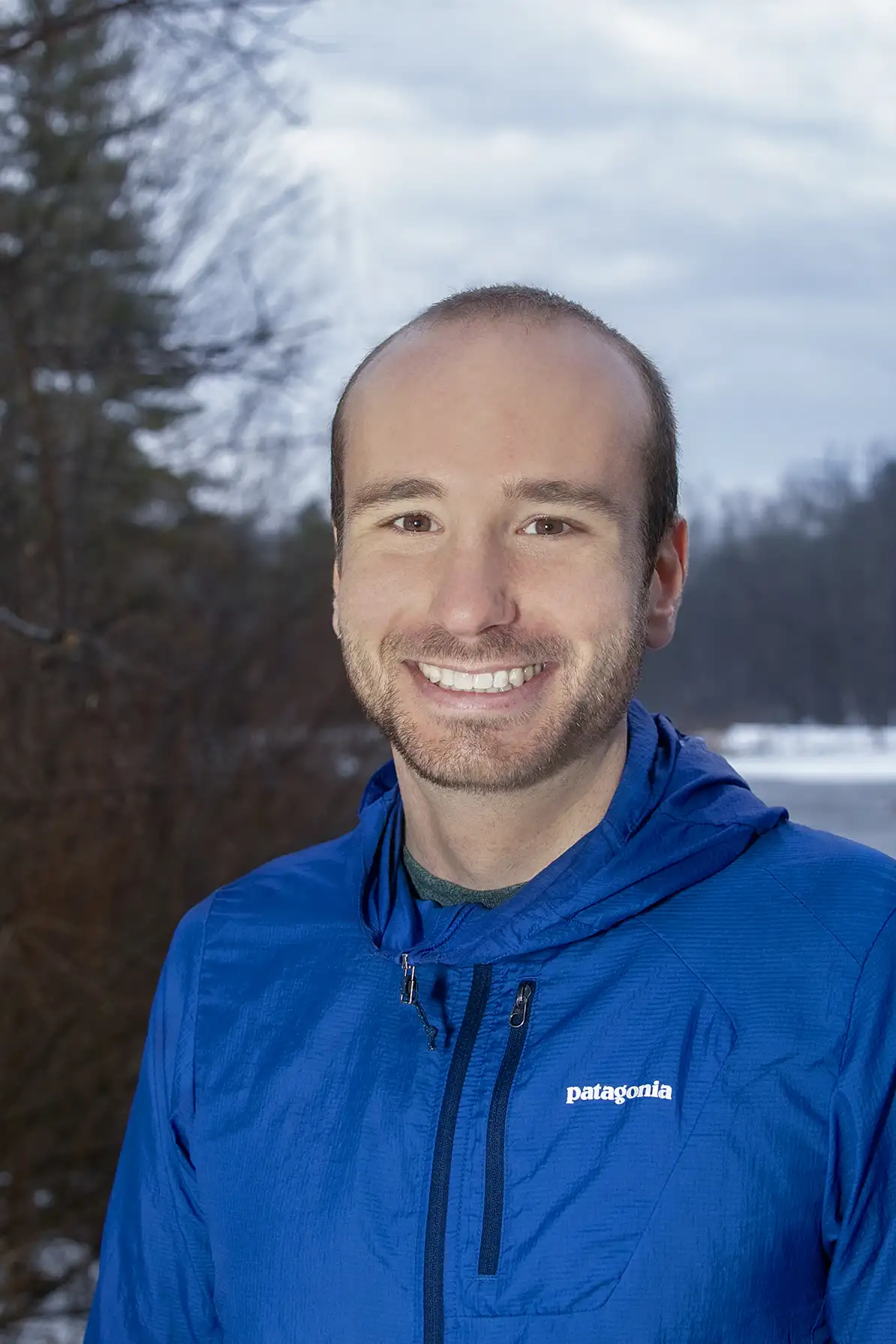U.S. Forest Service intern develops genetic tests to detect invasive species
Meet John Kronenberger

John Kronenberger monitors wildlife using environmental DNA. Photo Credit: Tracy Kaback
As a kid, John Kronenberger was fascinated by nature. He would spend his free time running through the woods near his house, catching critters and (much to his parents’ chagrin) taking them home for closer observation. Kronenberger also developed a keen interest in astronomy and physics. While earning his bachelor’s degree at Berry College in Rome, Georgia, he realized he would much rather be playing outside than sitting at a telescope or doing math.
After receiving his biology degree, Kronenberger thru-hiked the Appalachian trail and traveled widely as a field technician. He spent time in Spain studying the evolution of avian breeding systems and in Trinidad studying rapid evolution in wild guppy populations. He continued to study guppies and the lessons they can provide for managing wildlife genetics while earning a master’s degree in ecology from Colorado State University in Fort Collins, Colorado.
After graduate school, Kronenberger thru-hiked the Pacific Crest Trail and spent time roaming the West to rock climb and visit friends.
“I found this wayward period rejuvenating,” he says. “After some travel, I was eager to continue in ecological and evolutionary research.”
He acquired a position as a DNA technician but felt that he wasn’t using many of the skills he had gained in graduate school. Kronenberger heard about the U.S. Forest Service Research Participation Program and was accepted as an intern in 2021.
ORISE gave me a critical opportunity at a time when I really needed one. Before ORISE I was a lab technician without much latitude for pursuing research. After ORISE, I was set up for success and had skills and relationships useful for obtaining a federal position.
The USDA-USFS Research Participation Program provides opportunities for students, postgraduates, established scientists and faculty to participate in programs, projects and activities at USFS-designated facilities to help USFS solve agricultural problems of high national priority.
Kronenberger began his tenure with ORISE as a Conservation Genomics Intern.
“The word ‘intern’ does not feel wholly accurate though,” he explains. “The position afforded much greater responsibility and flexibility to pursue research on my own terms.”
Kronenberger was stationed within the Wildlife Ecology Program of the U.S. Forest Service’s Rocky Mountain Research Station in Missoula, MT.
He was tasked with developing dozens of genetic tests designed to detect DNA from invasive species in environmental samples. To help accomplish this goal, he coded a machine-learning model that predicts test performance.
“This model enables researchers in our lab and others to greatly diminish the amount of lab testing necessary for assay validation,” Kronenberger explains. “For this project alone, we estimate it’s saved hundreds of thousands of dollars and years of development time.”
The purpose of Kronenberger’s research was biodiversity conservation.
“Environmental DNA (eDNA) sampling gives researchers and wildlife managers a better understanding of what species are present in the landscape,” he says. “If endangered species are detected, they can be protected. If invasive species are detected, they can be mitigated.”
Kronenberger is now a GS-9 Ecologist working with the U.S. Forest Service. His work has continued on the track that he began as an ORISE intern, working with eDNA to help conserve biodiversity.
Looking back on his time as an intern with ORISE, Kronenberger describes impact positively.
“ORISE gave me a critical opportunity at a time when I really needed one,” he recalls. “Before ORISE I was a lab technician without much latitude for pursuing research. After ORISE, I was set up for success and had skills and relationships useful for obtaining a federal position.”
His advice to students considering a STEM-focused internship appointment?
“Go for it! ORISE was a great experience for me.”
The USDA USFS Research Participation Program is funded by USDA and is administered through the U.S. Department of Energy’s (DOE) Oak Ridge Institute for Science and Education (ORISE). ORISE is managed for DOE by ORAU.

